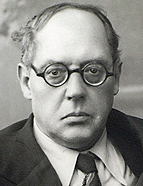

This view of the past, subordinating it to the problems of contemporary times, combined with his natural tendency towards controversy, would often bring him into conflict with other members of the Republic of Letters. Some were from different quarters – such as Raúl Proença, Agostinho da Silva and António Sérgio – while others were closer to him personally – such as Joaquim de Carvalho. In the latter two cases, in particular, it was fundamentally the instrumentalisation of the historical view that motivated the main disagreements. Carvalho, who was his editor at the University of Coimbra Press and whom he asked to read the originals of Elementos, saw Pimenta’s work as methodologically innovative (in terms of research and use of sources) but “scientifically debatable”, noting the excessive attention to political history and the secondary importance given to the study of society, the economy and institutions (Joaquim de Carvalho, “Letter of 16-11-1934”, Letters from Joaquim de Carvalho to Alfredo Pimenta, pp. 257-258). Pimenta himself refuted this position several times, arguing that “The history of peoples is, after all, the history of their great men” (Novos estudos filosóficos e críticos, 1935, p. 160) and that, from a positivist perspective, it was from the study of these great men that important lessons for the present could be drawn. This position is quite different, for example, from that taken by António Sérgio. In the proposal presented by the essayist in his Introdução geográfico-sociológica à História de Portugal (Geographical-sociological introduction to the history of Portugal), which sparked a controversy with Alfredo Pimenta, the fundamental thing was not the facts, but the relationship that reason allowed to be established between them (the Middle Ages and the Expansion not as distinct phenomena, but as one – the transition from a local agrarian economy to a bourgeois, commercial and maritime economy, for example). For the historian from Guimarães, the opposite was true: there were ‘pure’, indisputable facts: ‘The conquest of Ceuta is one thing, a pure fact, and the explanation that Mr António Sérgio gives to that fact is another’ (A História de Portugal do Sr. António Sérgio [The History of Portugal by Mr António Sérgio], 1941, p. 25).
This work is financed by national funds through FCT - Foundation for Science and Technology, I.P, in the scope of the projects UIDB/04311/2020 and UIDP/04311/2020.
